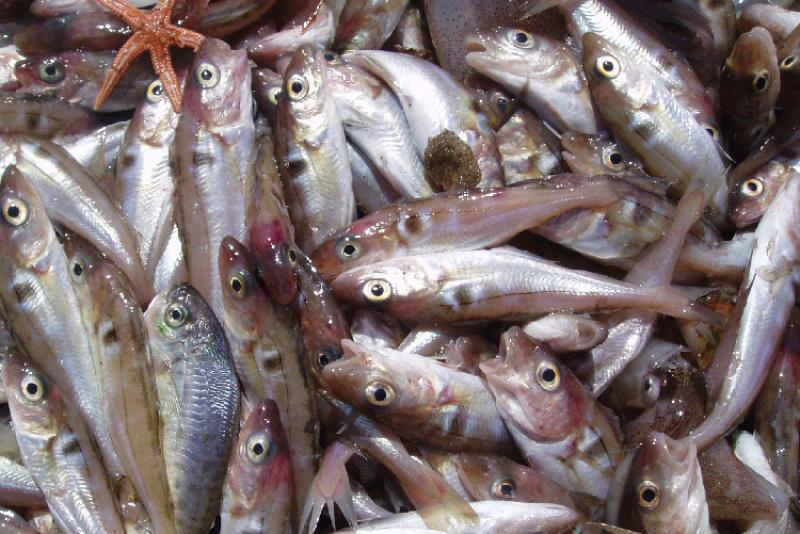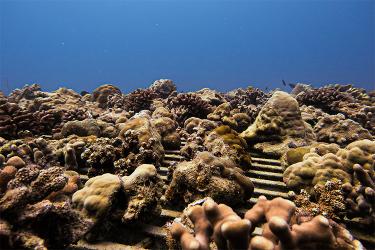Peer reviewers are evaluating 14 Northeast groundfish stock assessments September 9-13. The review meeting is at the Northeast Fisheries Science Center’s Clark Conference Room, Woods Hole, Massachusetts.
How Much Review?
To keep fisheries and fishery management successful in the Northeast, scientists provide information on about 60 fishery stocks in the form of stock assessments. Of these,14 groundfish stocks are under review this year.
There are two tracks for peer review—one for management and one for research. This ensures that the information needed for fishery management in a given year is available and that there is sufficient time to improve assessment science.
Management Assessments
The management assessment schedule is designed to provide set cycles for each stock. Some are assessed every year, some every two years, and so on. In a given year, the selected stocks are reviewed in the early summer or in the early fall. The timing aligns with the fishery management timelines for the various stocks.
This way, all stocks are assessed often enough to provide managers with what they need to develop good management measures and appropriate catch limits.
All of the assessments under review this week are management assessments. These are designed to be simple, quick, and more efficient than research assessments.
Using the new assessment process, an oversight panel met in June. They determined how much detail to include in each groundfish assessment and how much time to devote to review. Assessments for 10 of the 14 stocks will be further examined by the peer reviewers. Assessments for four will be reported directly to the New England Fishery Management Council.
Research Assessments and Investigations
If a stock assessment or a particular research question needs substantial revision or consideration, it’s moved into a different review process for “research” assessments or investigations. This is sometimes referred to as the “research track.” This allows time for in-depth study and peer review.
Research assessments and investigations are scheduled out five years on the research track. The current research track schedule includes two peer reviews annually.
What’s On the Agenda?
In 2017, fishery scientists updated assessments for the stocks in review with data available through 2016, with limits on what changes were allowed to the models. The 2019 assessments will add two more years of data, updating information through 2018. As approved by the oversight panel, assessors will also have flexibility to improve models.
While the assessment goals are all the same, data, methods, and models vary for each. For more, review the assessment oversight panel’s summary report (pdf, 7 pages). Detailed information is available for each stock through our data portal.
Public comment periods are scheduled throughout the meeting. For times, please review the agenda.
Day 1: September 9
Researchers identified some issues common to many of the assessments:
-
How to treat misreported catch associated with the Carlos Rafael case.
-
How to use new estimates of research survey catchability for flatfish, derived from recent cooperative research with the Northeast Trawl Advisory Panel.
-
Incorporating new recreational catch estimates derived from data collected through the Marine Recreational Information Program.
-
How to use data collected through experimental fisheries that tested different approaches to, and uses for, electronic monitoring.
Discussion of how these issues affected the assessments, and how they were addressed, begins at 1:15 PM. Later in the afternoon, the reviewers will consider assessments of Georges Bank haddock and white hake stocks.
Day 2: September 10
The morning session is entirely devoted to Gulf of Maine cod. The oversight panel identified this stock as one as requiring more extensive peer review than others. In the afternoon, the peer reviewers will consider assessments of Cape Cod/Gulf of Maine yellowtail flounder and Southern New England/Mid-Atlantic yellowtail flounder.
Day 3: September 11
Reviewers will consider assessments of Northern windowpane and Gulf of Maine haddock in the morning, and assessments of American plaice and pollock in the afternoon.
Day 4: September 12
Reviewers will consider the Georges Bank winter flounder assessment in the morning. Then there will be discussion, comment, and meeting wrap-up.



